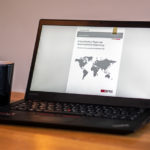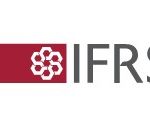
The talk about the ‘alphabet soup’ of reporting frameworks and standards might have died down, but the problem has not gone away. At this point the involvement of the IFRS Foundation, ‘overwhelmingly’ welcomed by the private sector (in response to a somewhat misleading consultation paper), looks unlikely to achieve the promised harmonisation. Those with a stake are waiting with bated breath or perhaps bemusement to see how the dust settles.
Three possible scenarios (and there are of course more) for sustainability reporting are:
A. Continue as set out
Under this scenario the IFRS Foundation Trustees appoint a chair for the ISSB (International Sustainability Standards Board) retaining the IFRS and ISSB acronyms (that don’t fit the stated aims or proposed content). The chair of the new ISSB is committed to ‘sustainability’ reporting that is concerned with enterprise value and cashflows, s/he has the backing of IOSCO and the big asset managers and is perceived as being able to win over the US bodies that were such a thorn in the side on the financial reporting harmonisation journey (despite so many compromises along the way).
Meanwhile, the EU will continue its work, full steam ahead, with EFRAG (European Financial Reporting Advisory Group), the GRI (Global Reporting Initiative) and Shift. Their consultation with a range of stakeholders will be rigorous and inclusive. They will follow a double materiality approach. The focus on the material impacts of an organisation on sustainable development (as well as disclosures of risks, opportunities, strategy and governance) will help national governments achieve their goals and investors will make more informed decisions about the quality of management . Other jurisdictions will develop similar legislation to address the demands of civil society and other corporate stakeholders for accountability.
Companies across Europe will be required to follow these standards and have their disclosures audited. They will push these requirements down their global supply chains to avoid reputation damage (affecting enterprise value). Large companies around the world seeking to retain their ‘licence to operate’ will want to at least appear to follow this practice.
Meanwhile, those companies with leaders whose judgement is clouded by greed, will follow the new rules of the new ISSB Standards if and when required. They will either remain in the dark about their own negative impacts on society and the environment or try to keep it to themselves while boasting about any positive impacts. (This is greenwashing.) After all, who is to say what human rights abuses and damage to bio-diversity will affect the bottom line and when?
B. Collaborate and learn
The IFRS Foundation and its new board will address the concerns made in numerous submissions to their consultation. (The new board won’t be called the ISSB because its almost identical to GRI’s GSSB.) The new board will work with the International Accounting Standards Board (IASB) to incorporate liabilities arising from sustainability issues in the balance sheet. The conceptual framing in the Management Commentary Practice Statement Exposure Draft and the sustainability reporting consultations will be amended. It will reflect that you cannot get to what affects enterprise value unless you have a rigorous process to identify material impacts on sustainable development. It will draw on the principles-based components of the integrated reporting framework and GRI Standards (supplemented by industry guidance). Disclosures will be relevant to the sustainable development context of the organisation (as in the SDGD Recommendations).
The IFRS Foundation’s new board will develop a minimum base of standards that combine a broad focus on value creation for the organisation, society and the environment (an extension of the integrated reporting framework) with accountability for material impacts on sustainable development (from GRI Standards). [These might include the WEF indicators – or, more accurately, the small group of GRI indicators selected by WEF (World Economic Forum) as not too challenging for their corporate stakeholders.]
C. What should have been the solution in the first place
The IASB will incorporate climate change and other sustainability issues into IFRS Standards so far as they affect the financial statements. The Value Reporting Foundation (VRF) (which receives substantial funding from Bloomberg Philanthropies) will assist with this. The IASB, VRF and GRI will collaborate on the Management Commentary Practice Statement as an umbrella conceptual framework for corporate reporting. The updated sustainability-fit IASB standards and Management Commentary Practice Statement will be mandated by Stock Exchanges. National governments will mandate GRI Standards updated through the partnership with the EU and an injection of cash. (Governments committed to addressing the UN SDGs and investors who recognise the importance of double-materiality for long term investment returns will contribute to the Global Standards Fund along with consulting and assurance firms that derive revenue as a result of the standards).
Conclusion
Scenarios B and C are better for people and the planet. And investors. Greenwash (to the extent that Standards are mandated) will be outlawed. Assurance will be mandated. So investors will be confident companies have a process to pick up risks resulting from material impacts and mitigate them.
There are groups keen to monetise, but how do you put a price on natural resources and biodiversity and human rights? Maybe that’s for the future (I hope not.) First, we need to understand the impacts of organisations on sustainable development and how sustainable development issues in turn affect organisations.
In any case, the quantity and quality of research in the field will continue to grow. Researchers will surely examine the outcome of any changes in the sustainability reporting landscape on greenwash, corporate social and environmental performance, investor decision making and so on.
You might enjoy this discussion, hosted by the Institute of Chartered Accountants of Scotland, between Sir David Tweedie (former chair of the IASB), Mervyn King (former chair of the GRI and IIRC) and I – it covers some of these issues and more.
Carol Adams, Professor of Accounting at Durham University Business School


